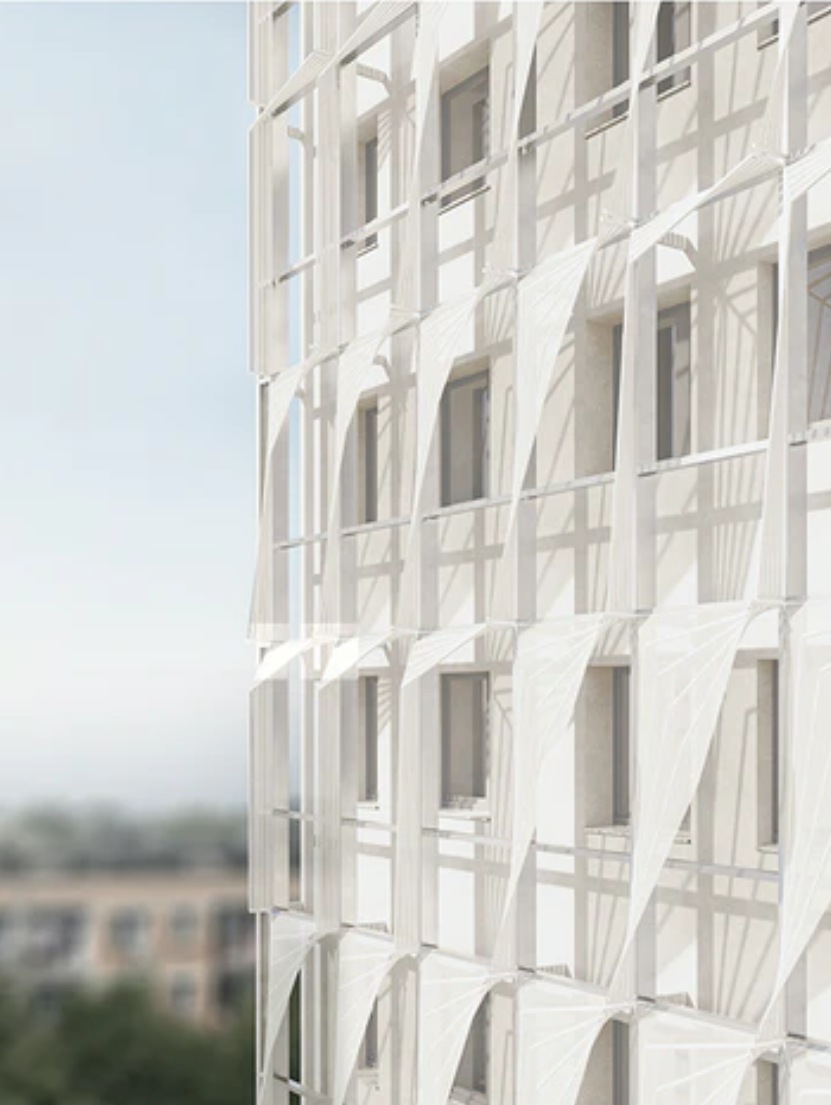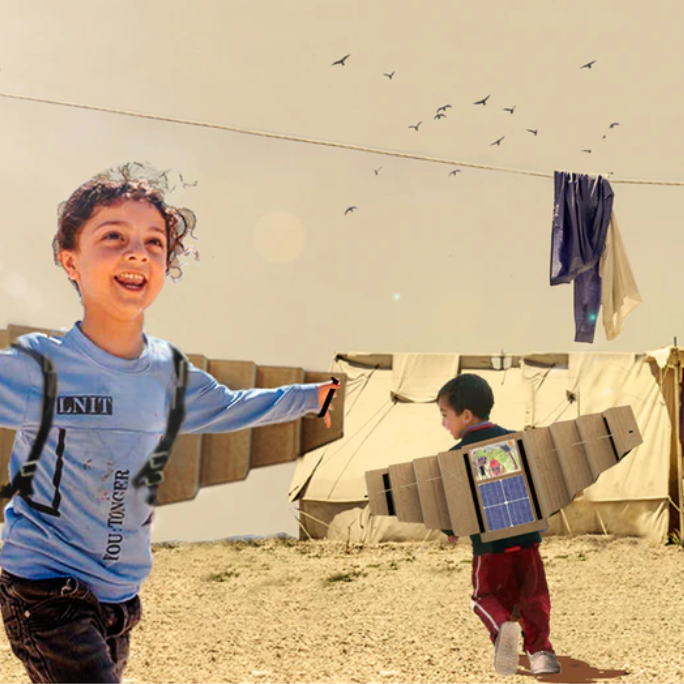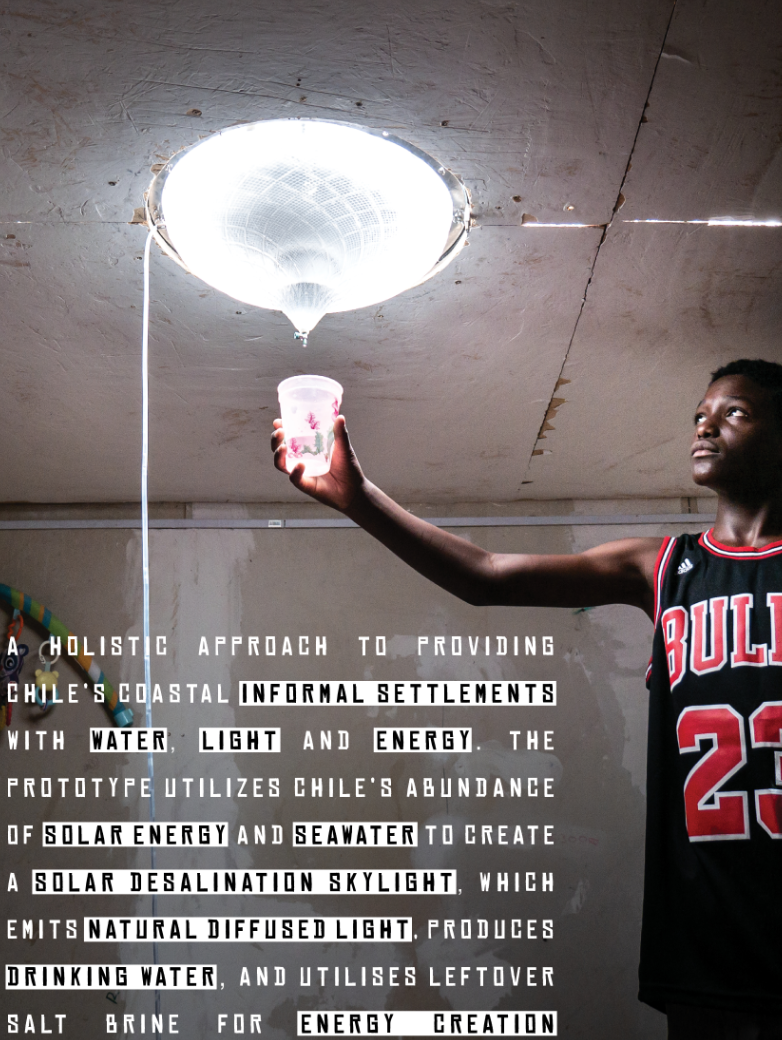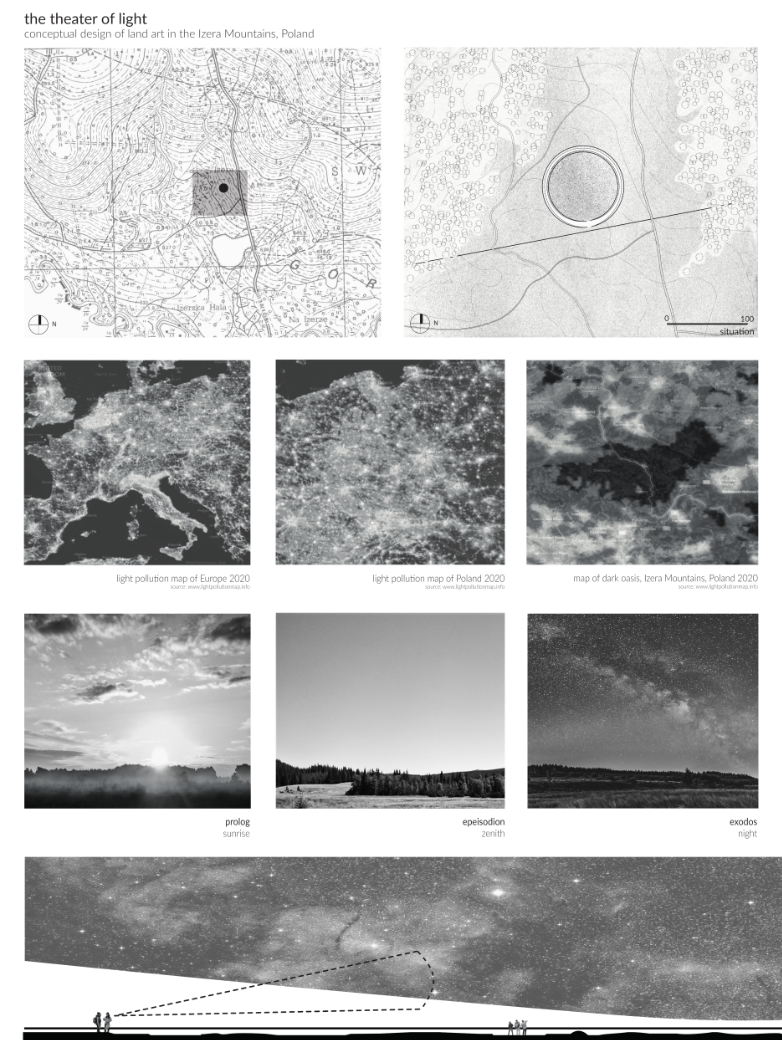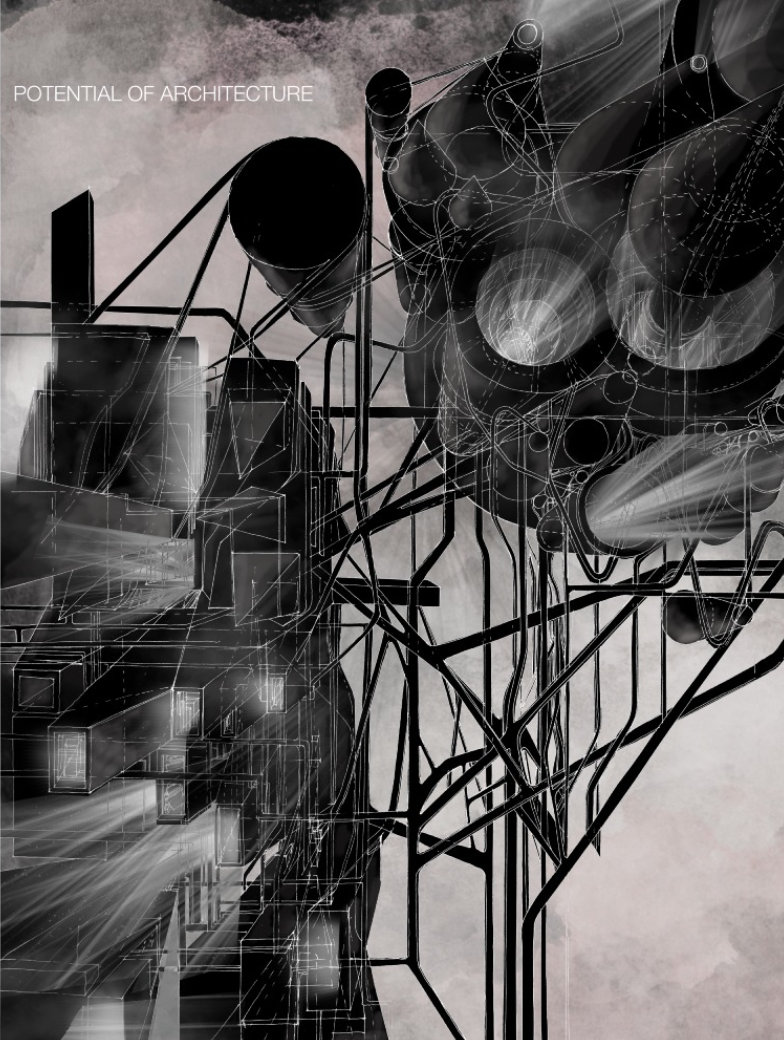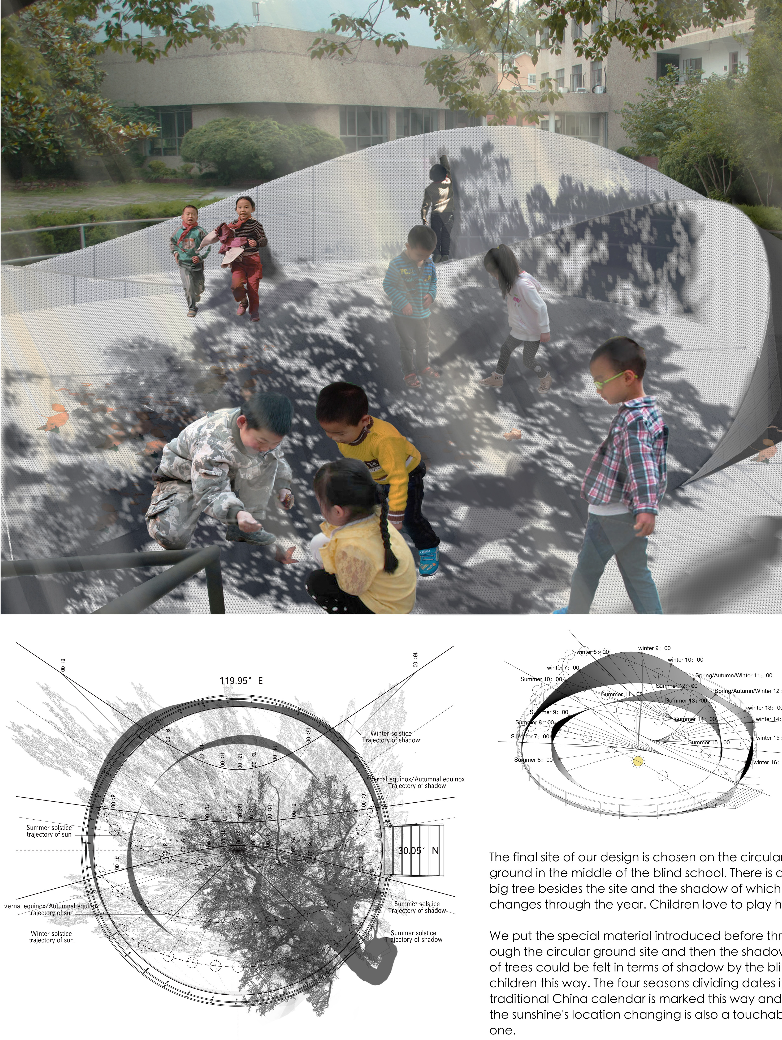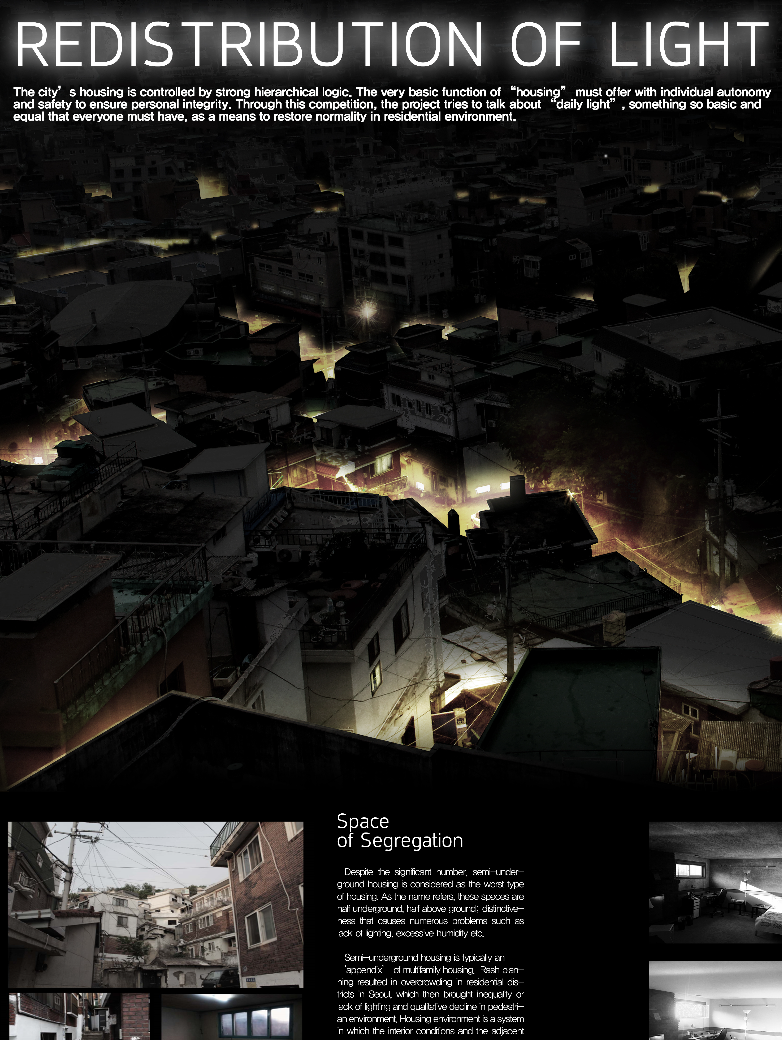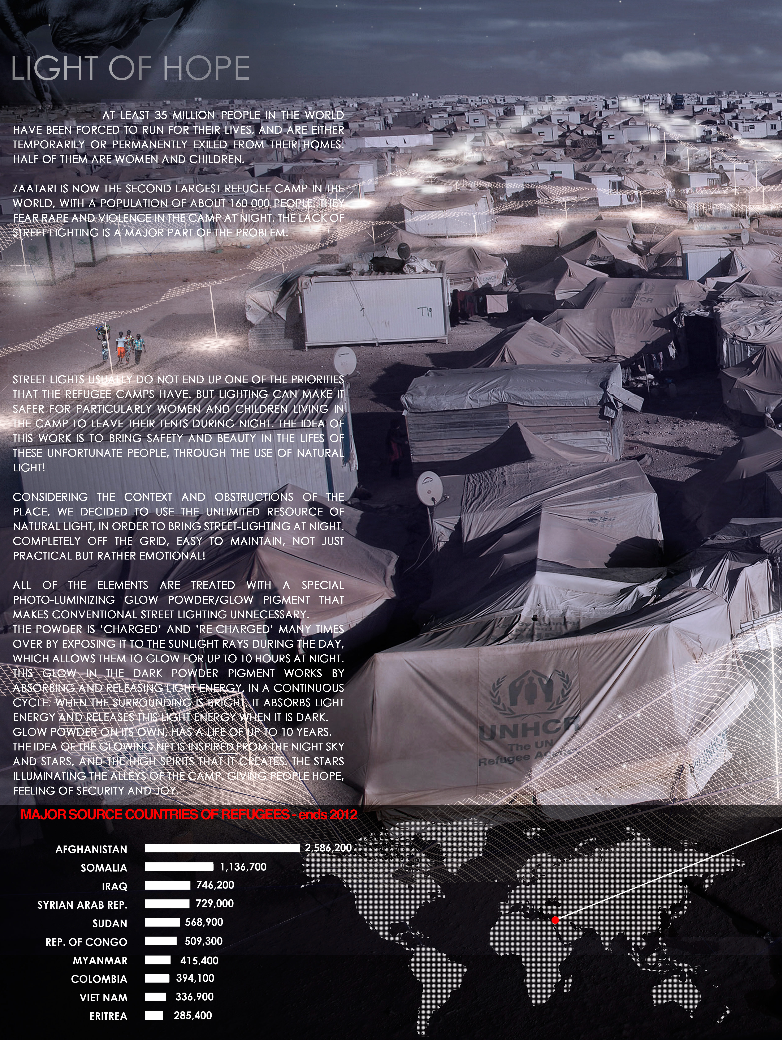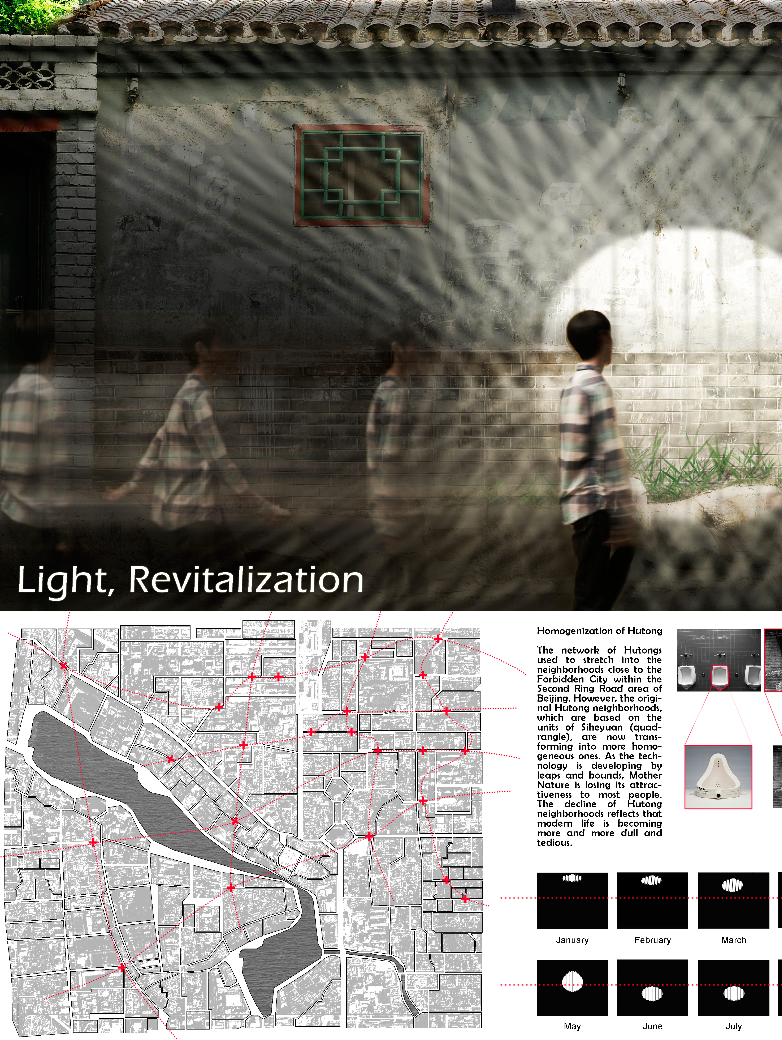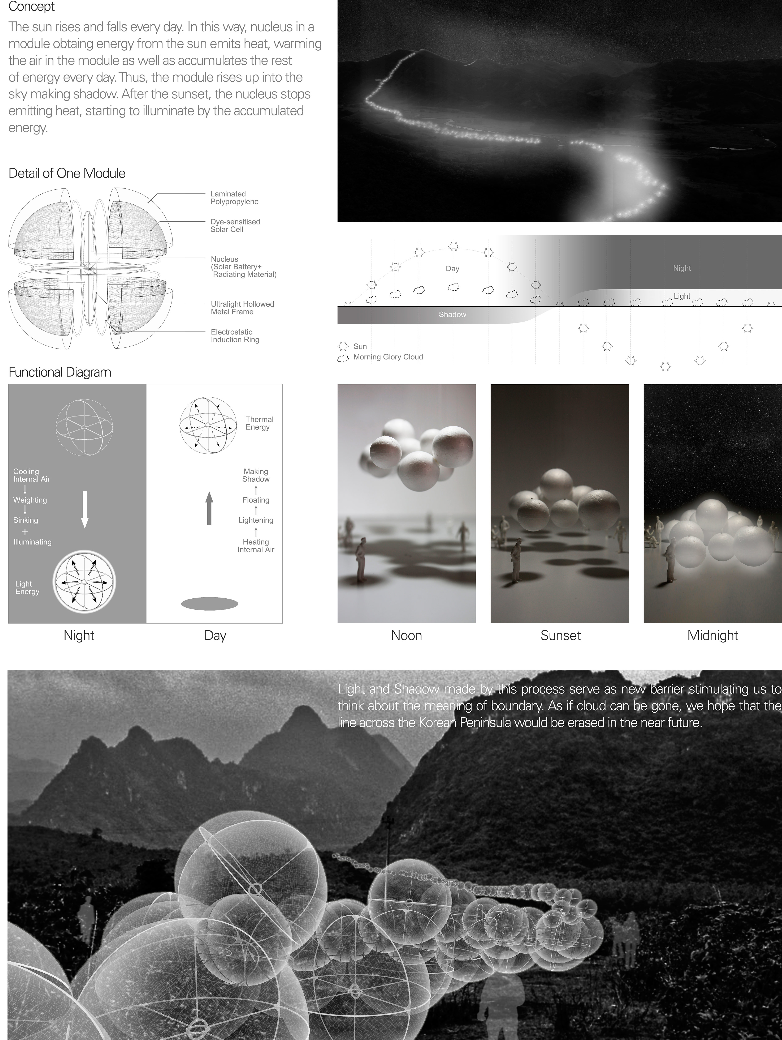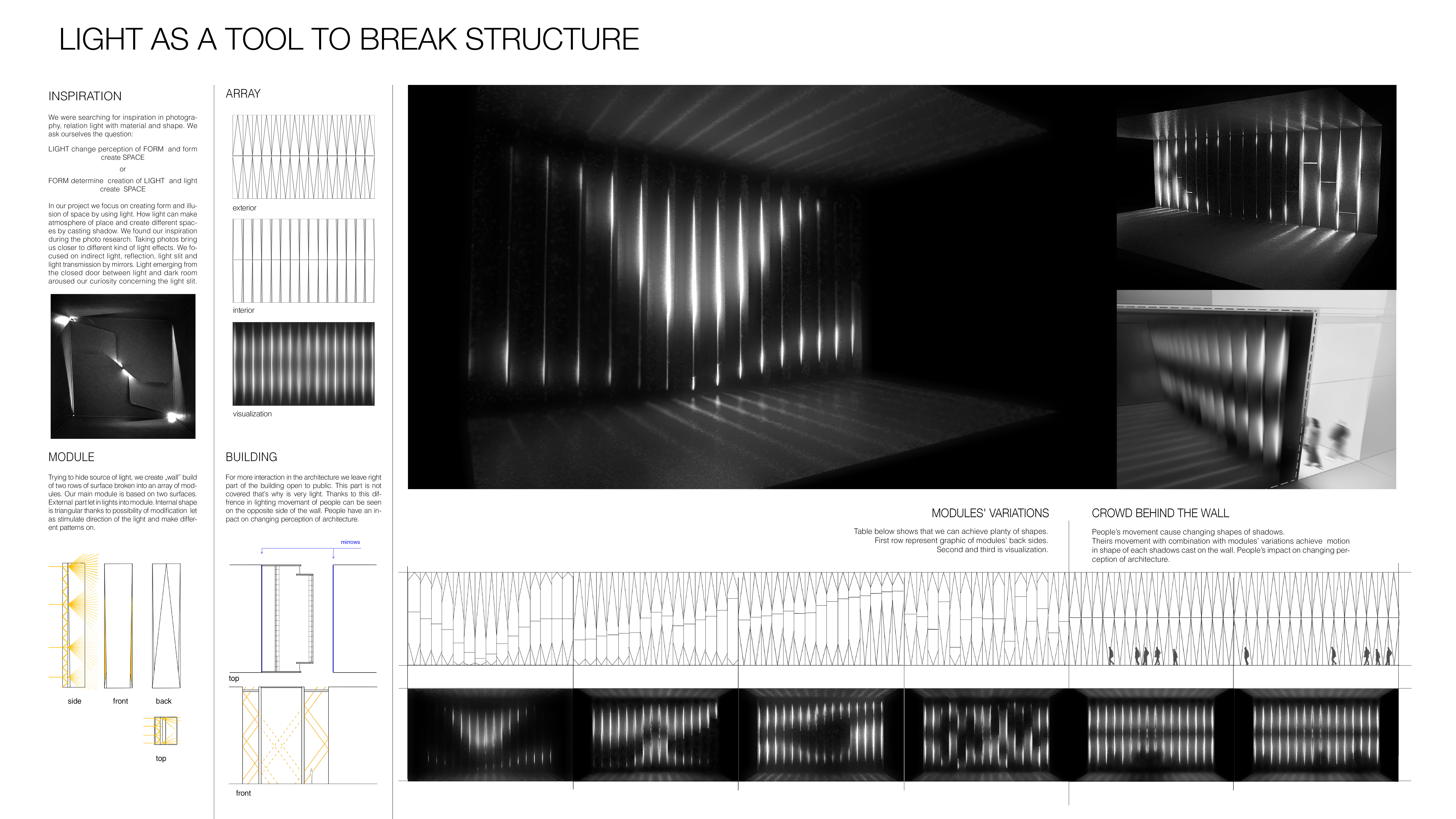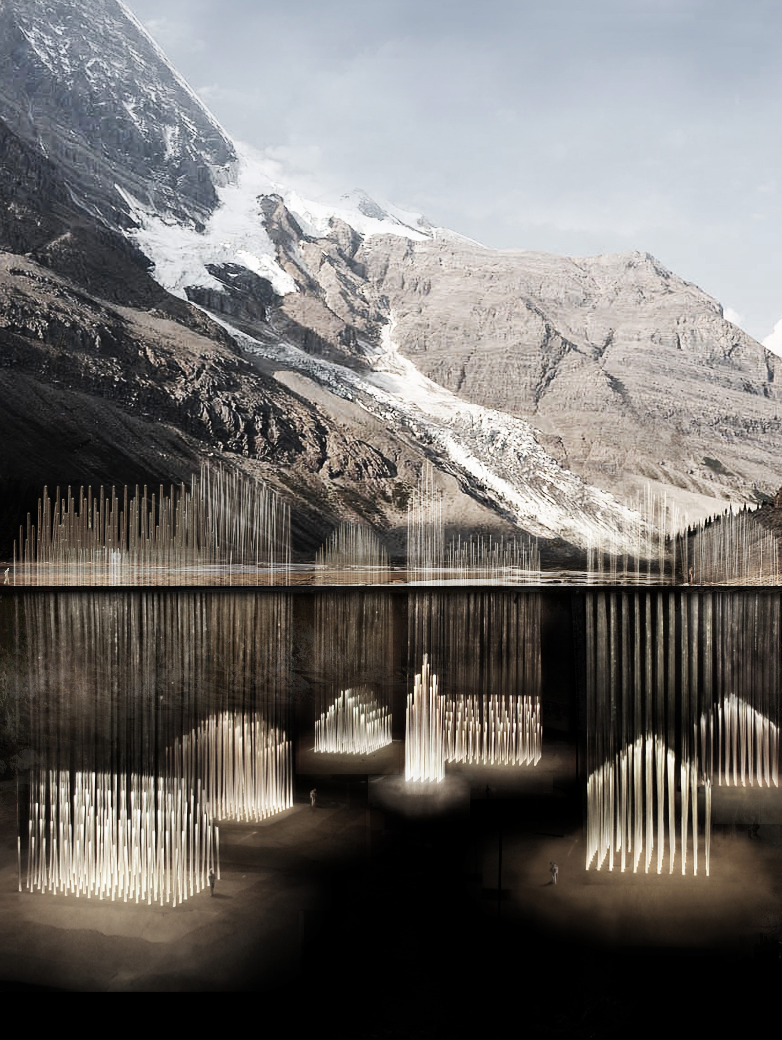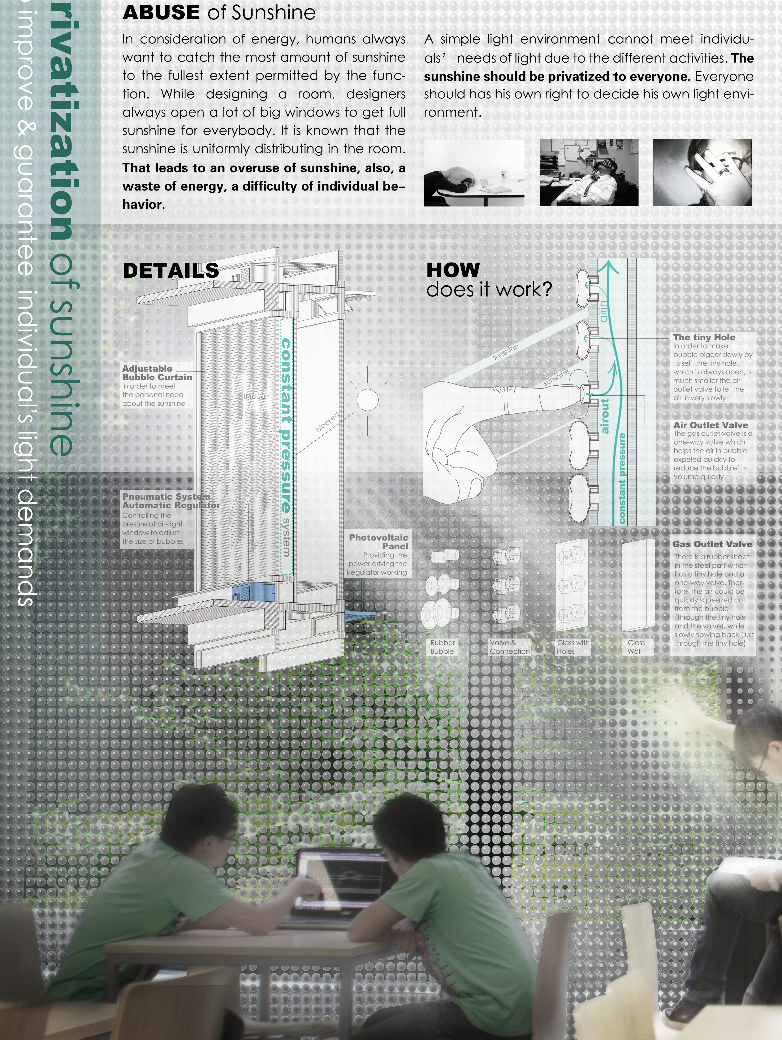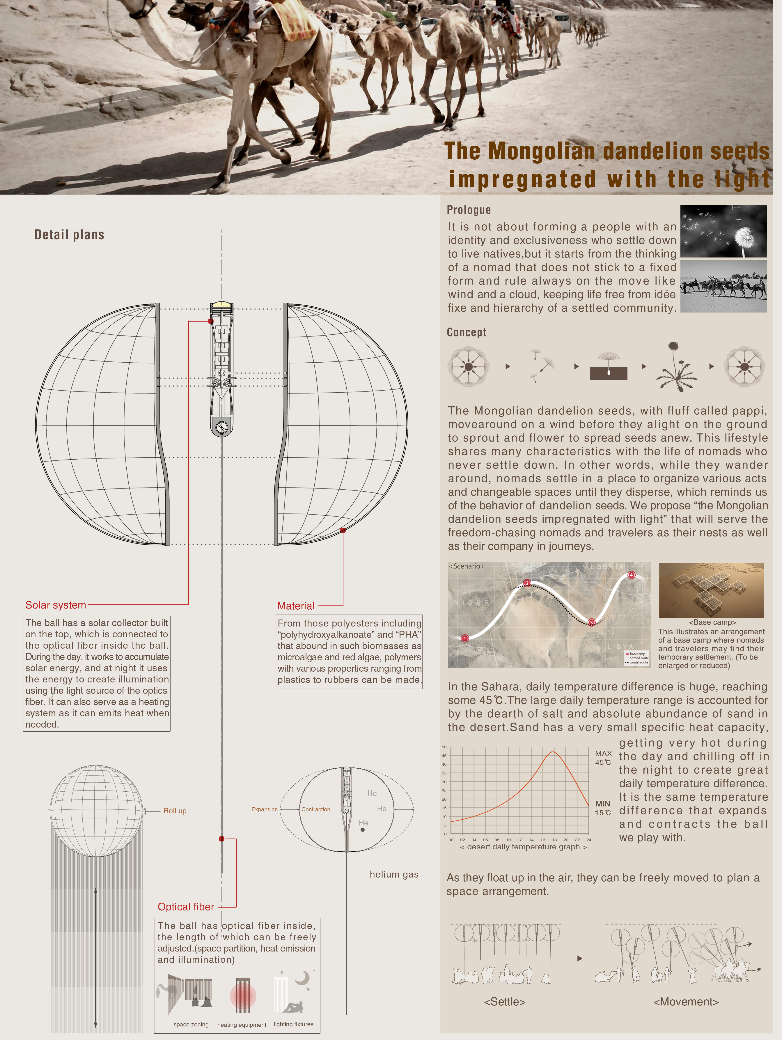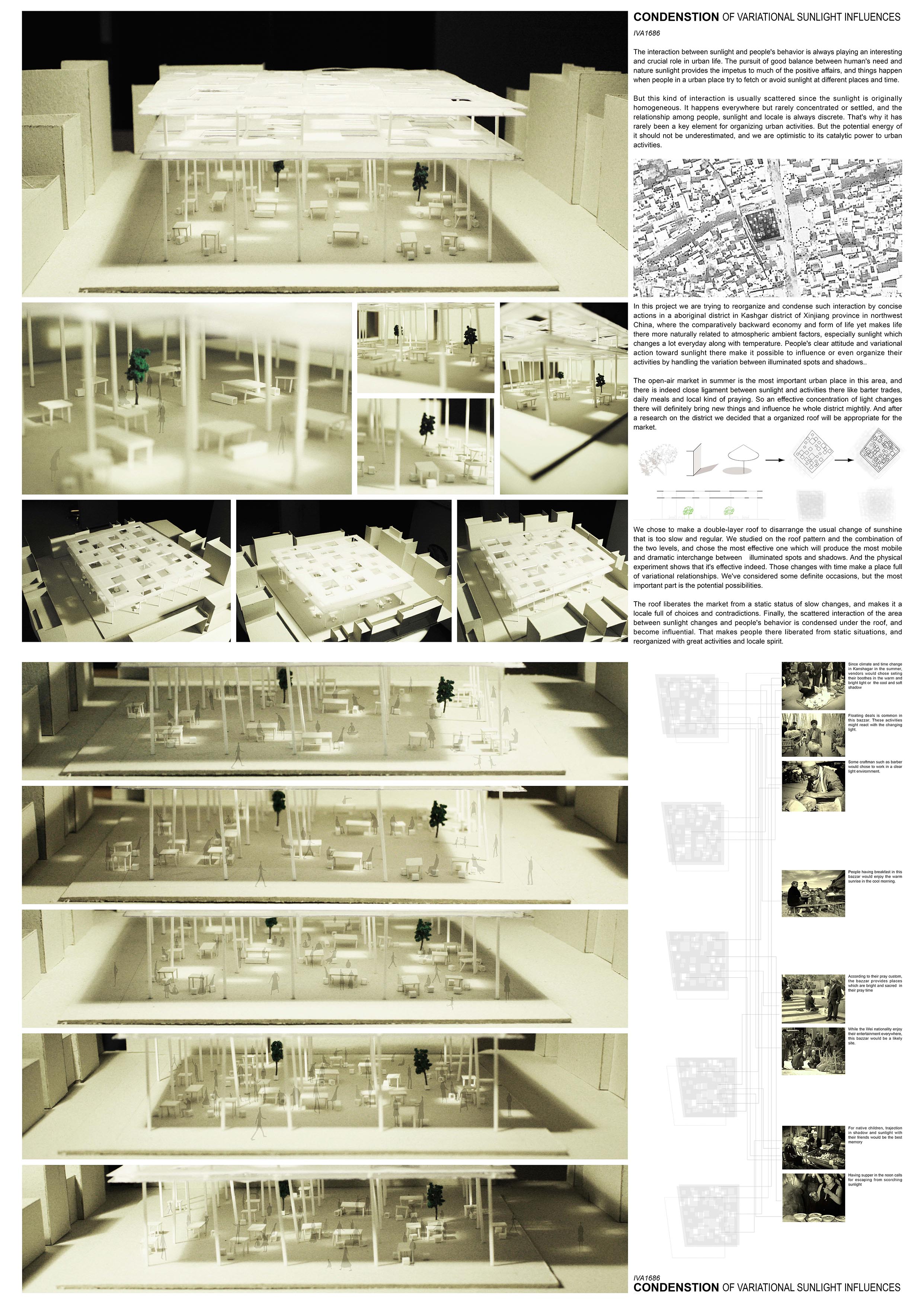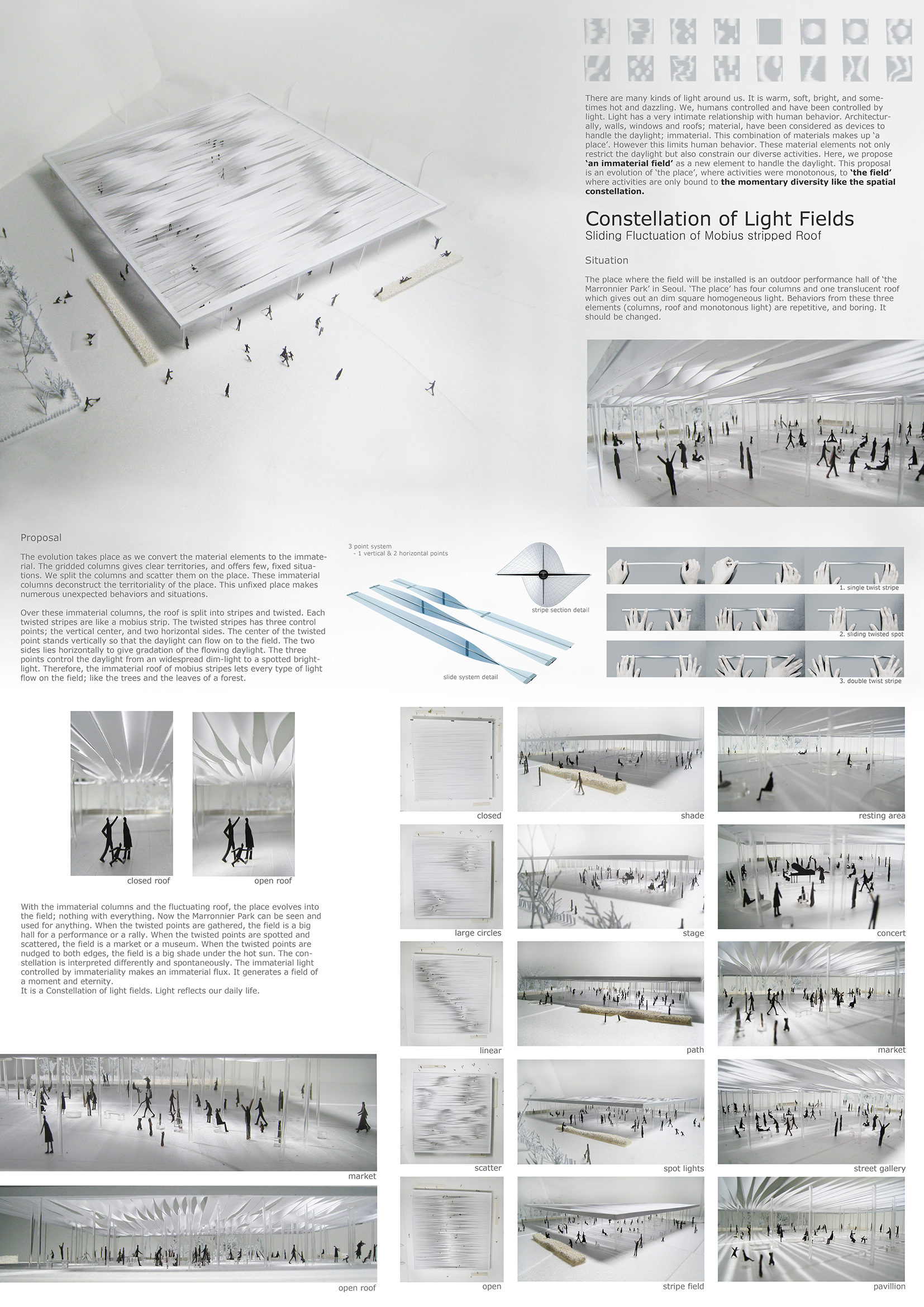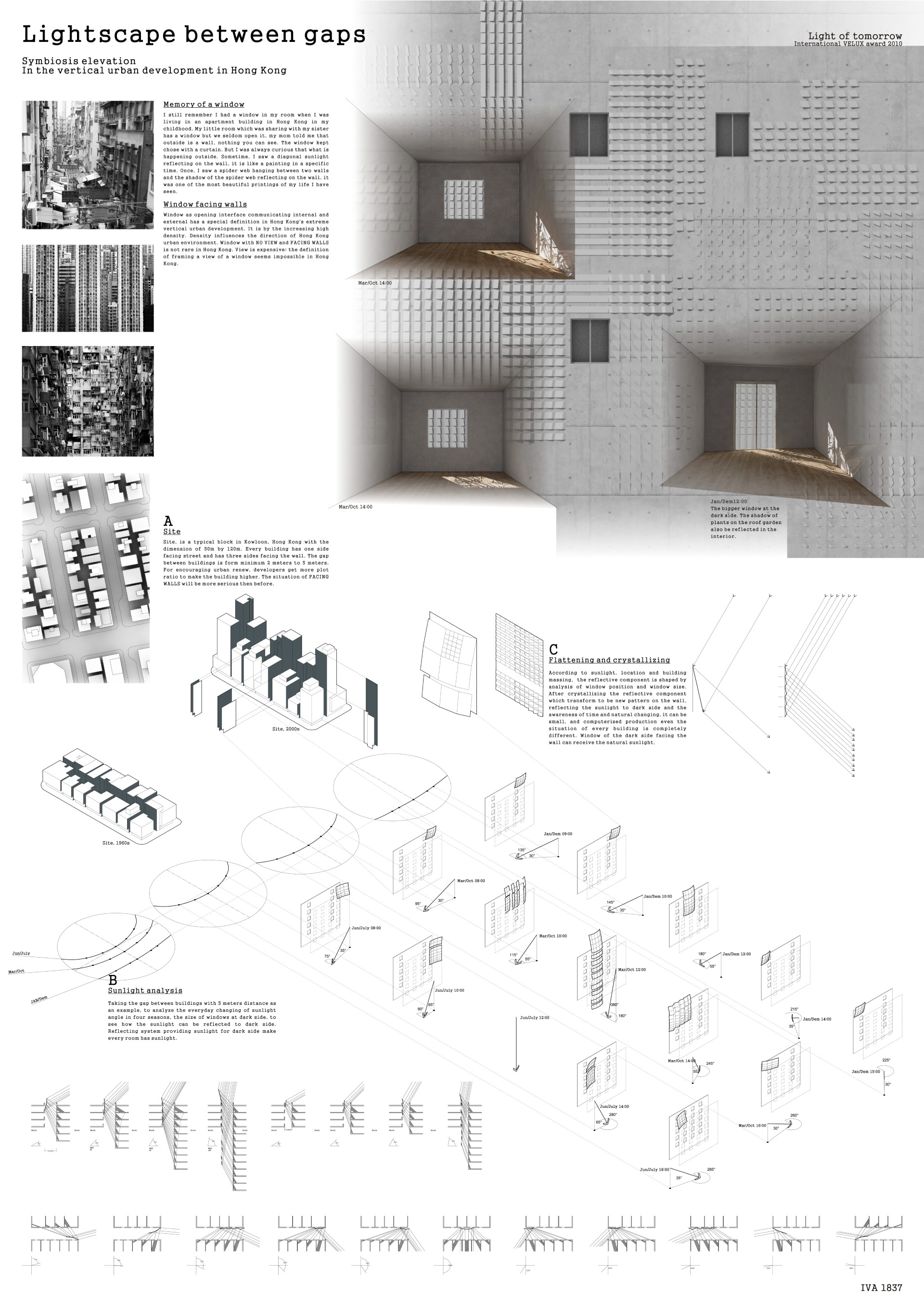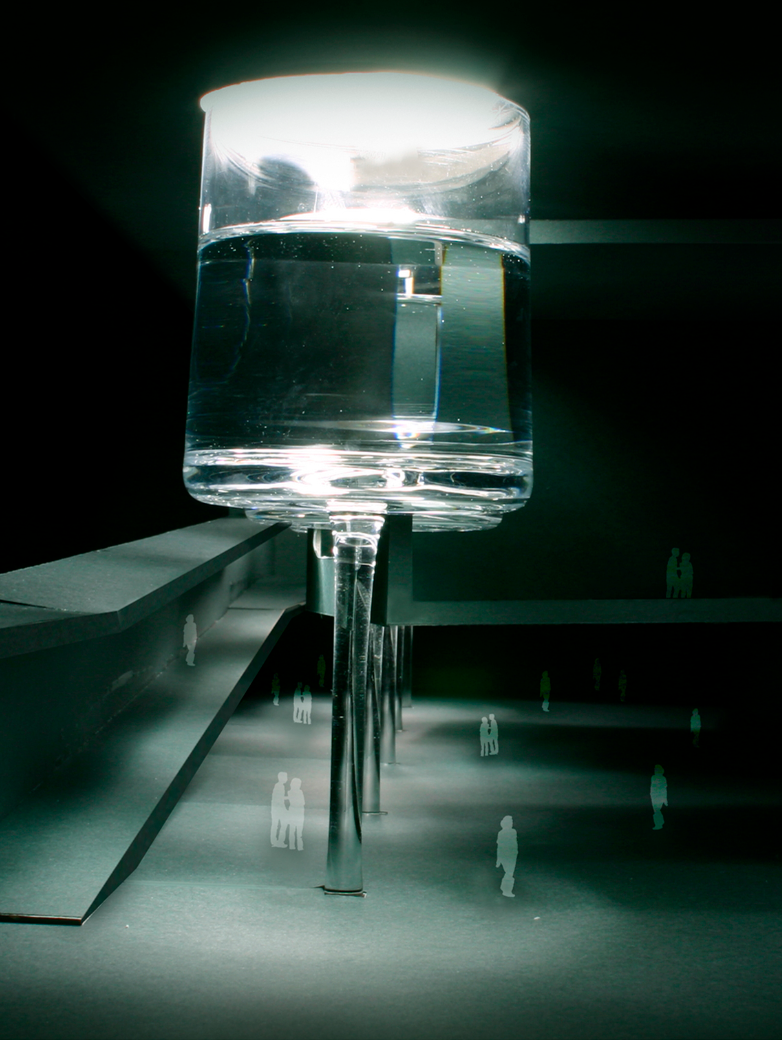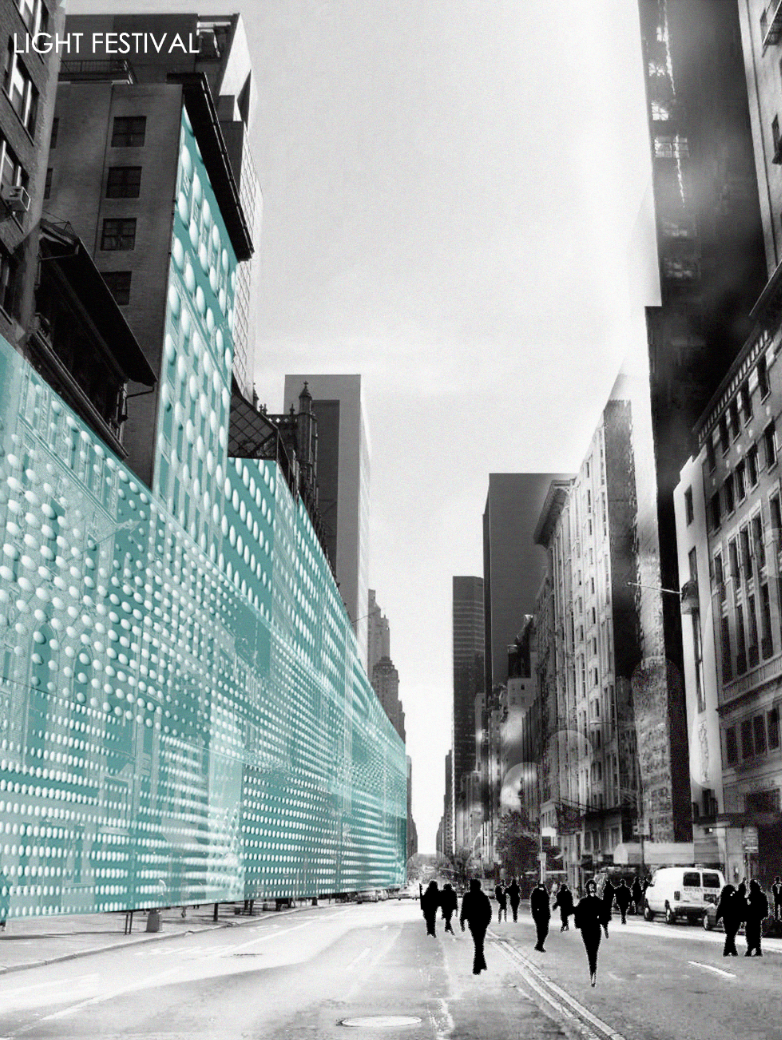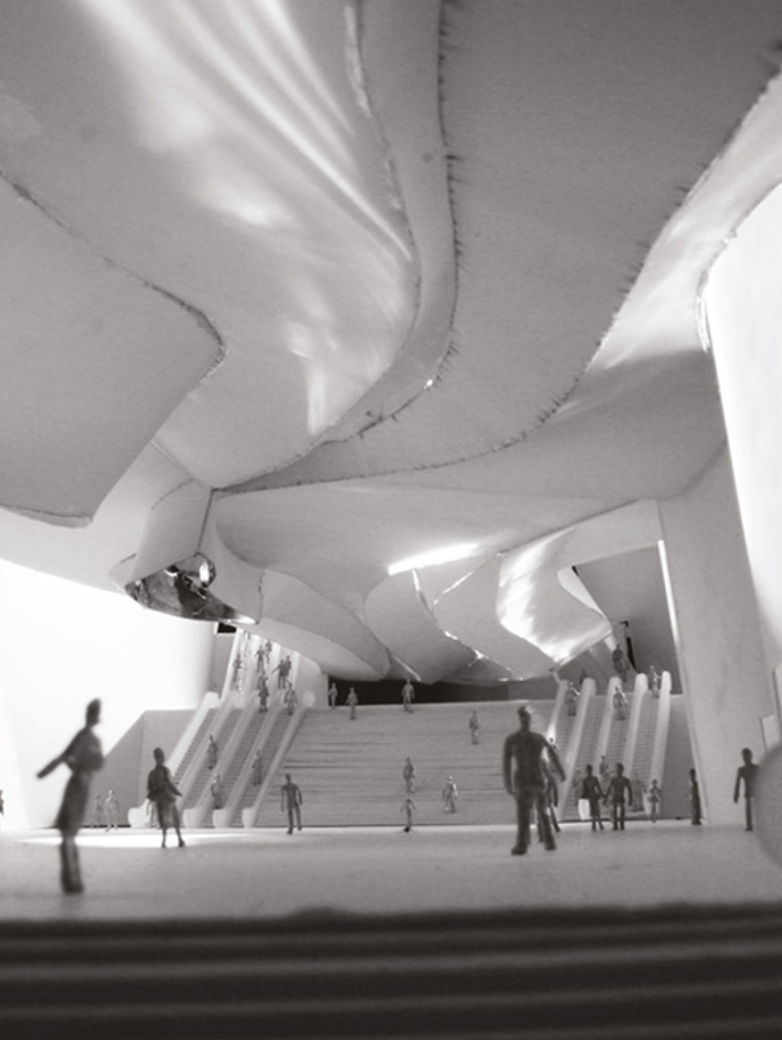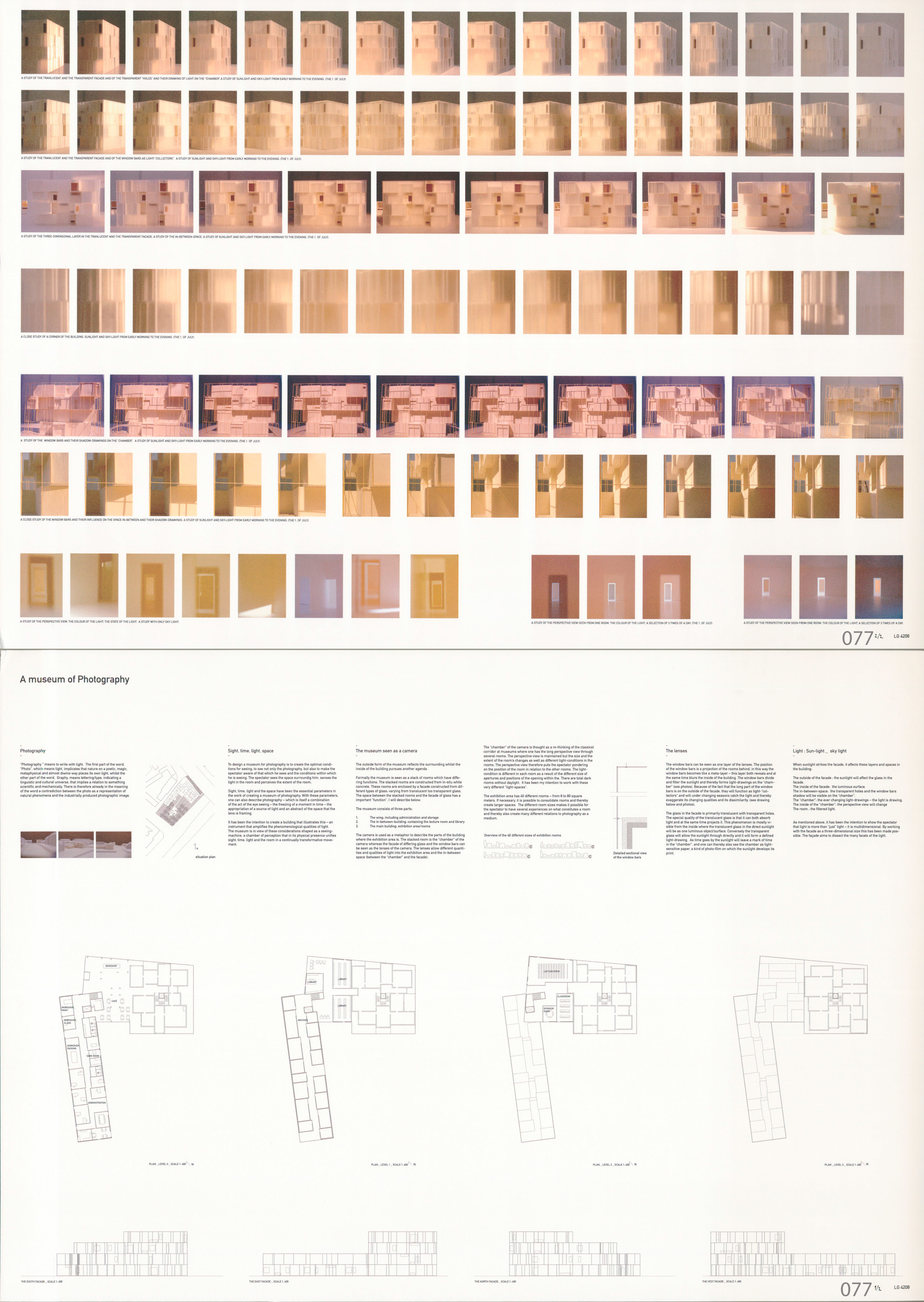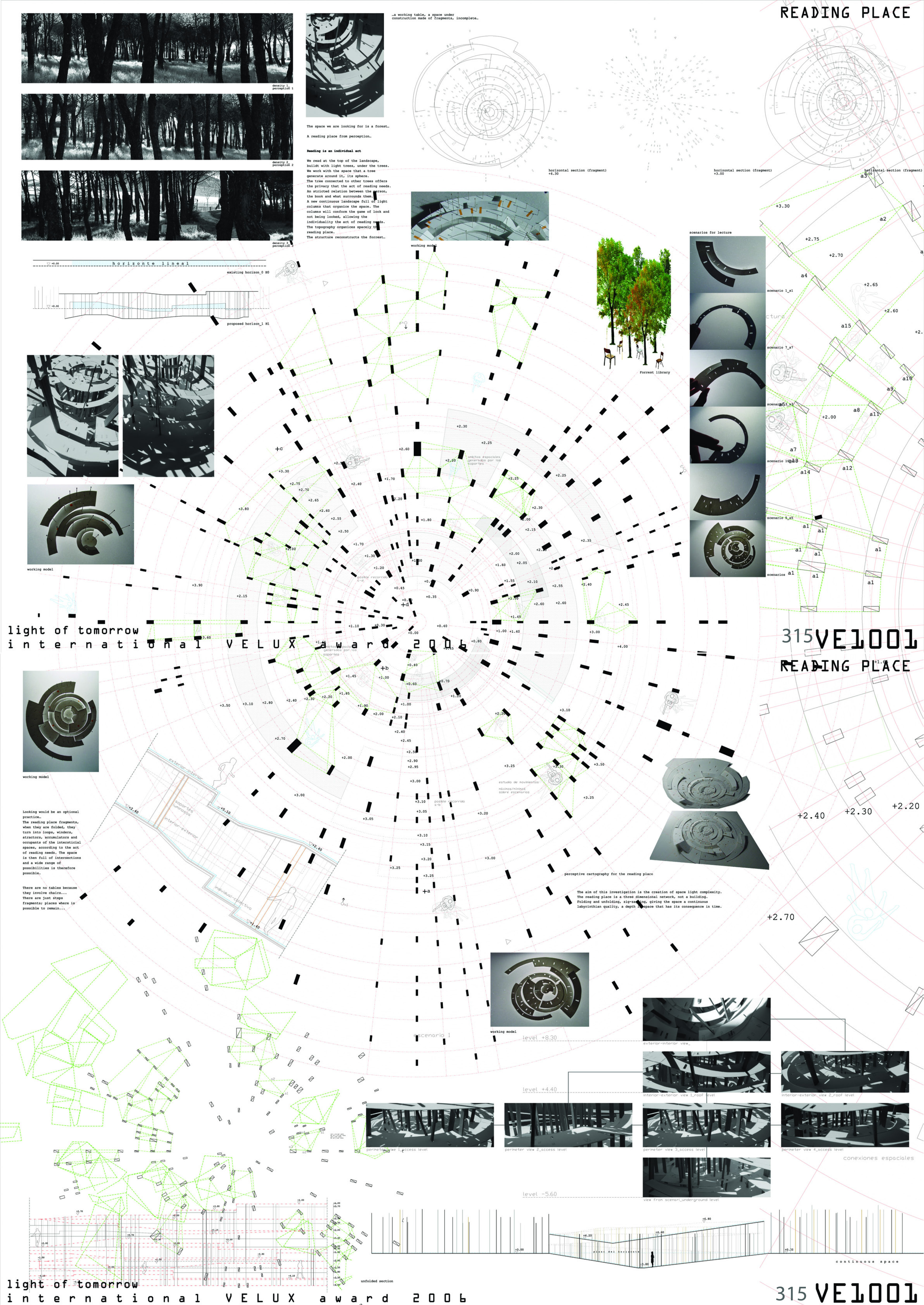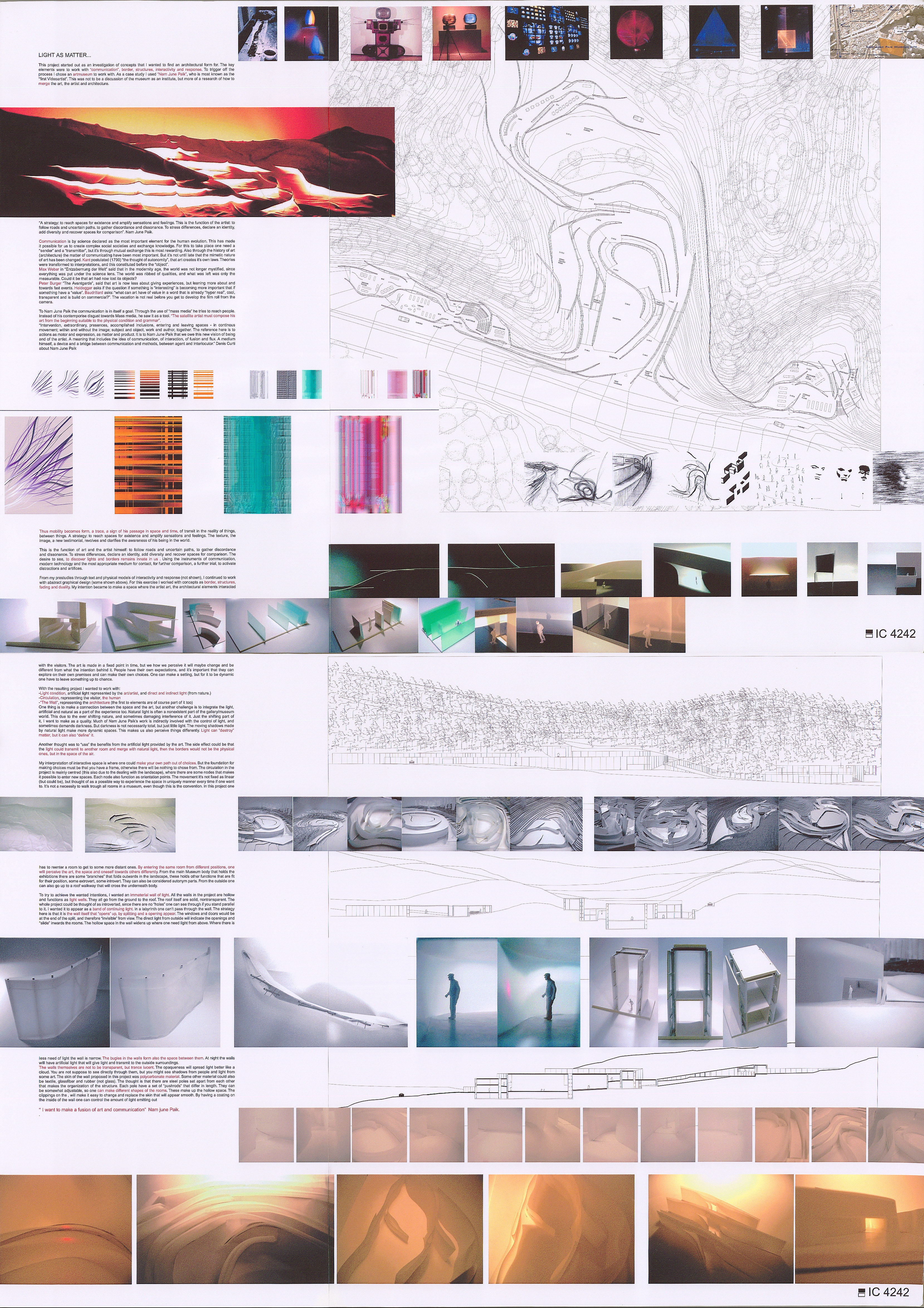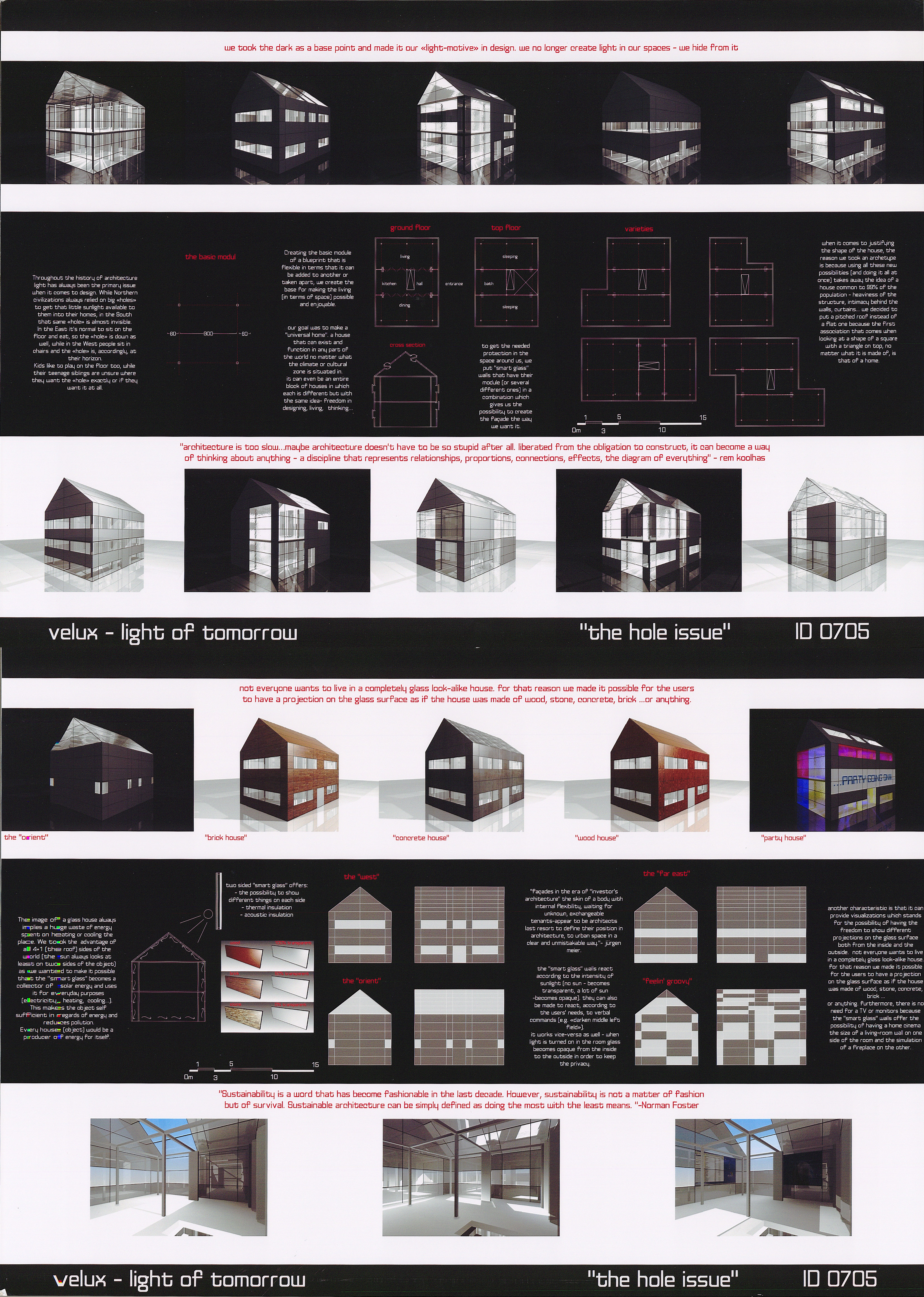2024 - Light Curtain
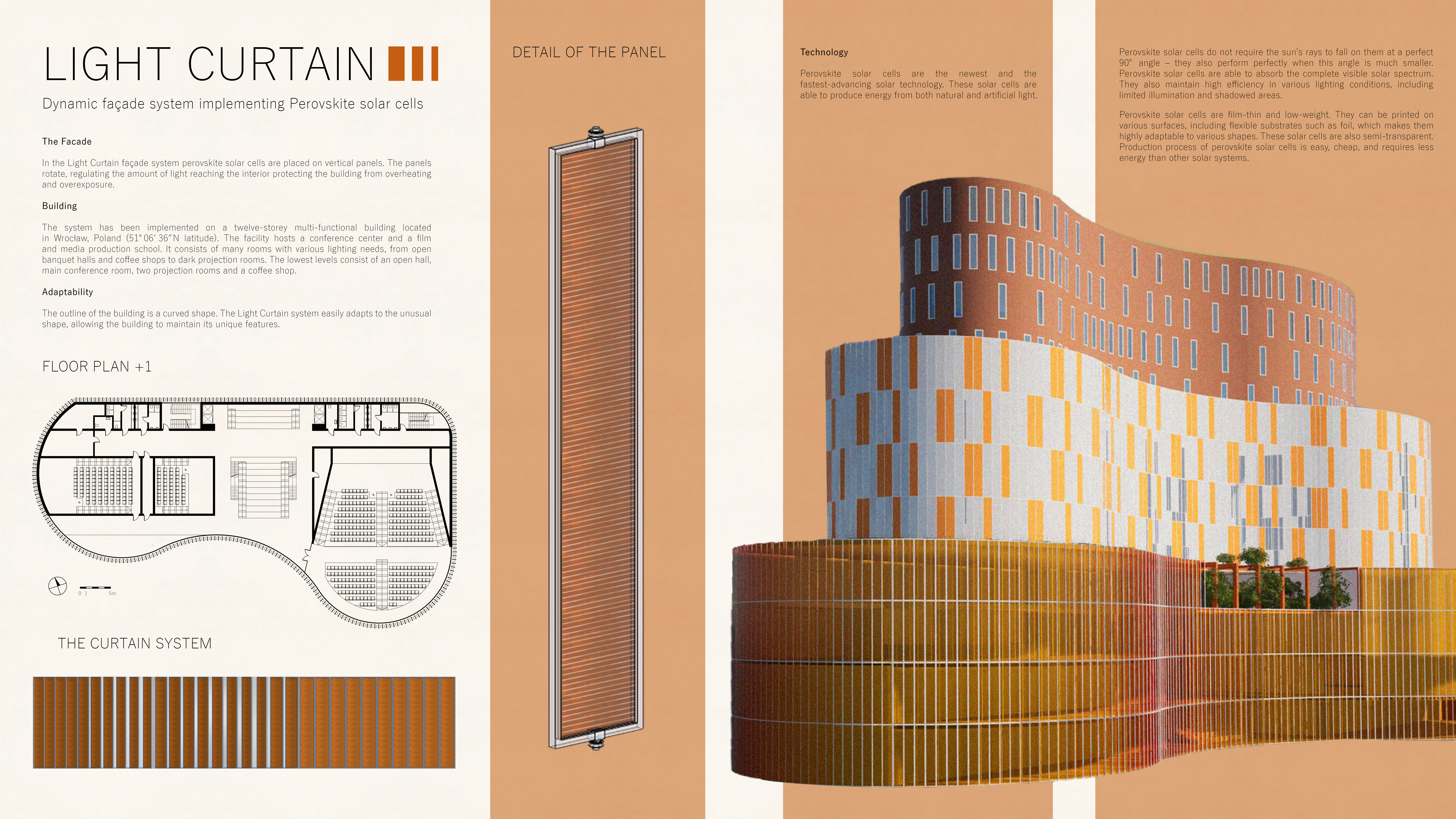
Category
Daylight in Buildings - Region 2: Eastern Europe and The Middle East
Students
Maria Królak & Martyna Wróbel
Teacher
Andrzej Sobolewski
School
Wrocław University of Science and Technology
Country
Poland
Download
Download project board
The Facade
In the Light Curtain façade system, perovskite solar cells are placed on vertical panels. The panels rotate, regulating the amount of light reaching the interior and protecting the building from overheating and overexposure.
Building
The system has been implemented on a twelve-storey multi-functional building located in Wrocław, Poland (51°06′36″N latitude). The facility hosts a conference center and a film and media production school. It consists of many rooms with various lighting needs, from open banquet halls and coffee shops to dark projection rooms. The lowest levels consist of an open hall, main conference room, two projection rooms, and a coffee shop.
Adaptability
The outline of the building is a curved shape. The Light Curtain system easily adapts to the unusual shape, allowing the building to maintain its unique features.
Perovskite Solar Cells Technology
Perovskite solar cells are the newest and fastest-advancing solar technology. These solar cells are able to produce energy from both natural and artificial light. Perovskite solar cells do not require the sun’s rays to fall on them at a perfect 90° angle – they also perform perfectly when this angle is much smaller. Perovskite solar cells are able to absorb the complete visible solar spectrum. They also maintain high efficiency in various lighting conditions, including limited illumination and shadowed areas.
Perovskite solar cells are film-thin and low-weight. They can be printed on various surfaces, including flexible substrates such as foil, which makes them highly adaptable to various shapes. These solar cells are also semi-transparent. The production process of perovskite solar cells is easy, cheap, and requires less energy than other solar systems.
